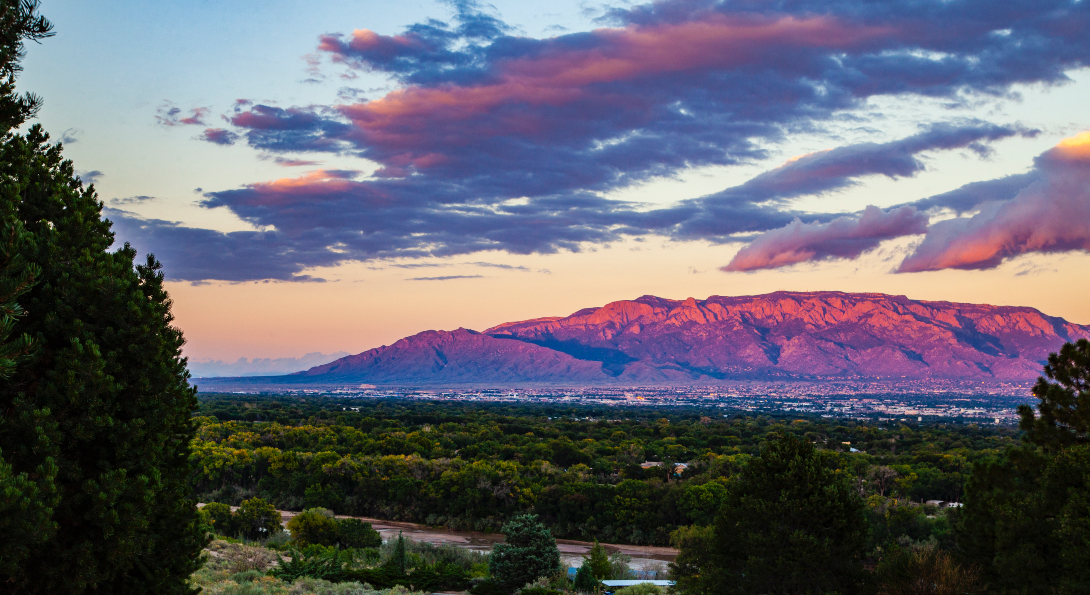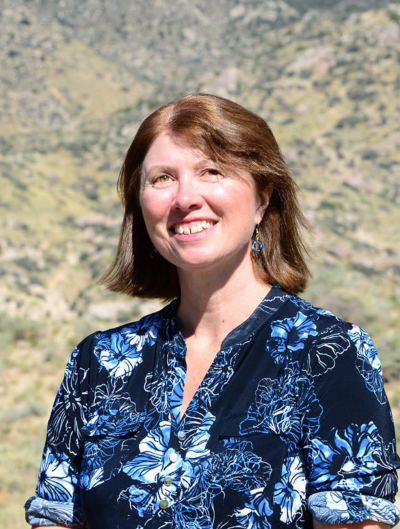Alumna Leads COVID-19 Response as County Commissioner

Story text Heading link

Charlene Pyskoty spent almost 20 years working as a mental health therapist before deciding to run for county commissioner of Bernalillo County in New Mexico, an area encompassing the City of Albuquerque, the eastern mountains and ranch land, and parts of the Navajo Nation. Sworn in on January 1, 2019, Pyskoty’s MPH in Community Health Sciences degree in 1991 from the University of Illinois at Chicago (UIC) School of Public Health was probably not the deciding factor in her election, but it would become a key tool in her governing portfolio as the COVID-19 pandemic emerged.
“I find myself at this place in time where I never knew I would be,” Pyskoty said. “I’m an elected official and a public health expert and, boom! I get to do something really big and great for my community.”
Leading a county with more than 675,000 residents, Pyskoty is overseeing COVID-19 response efforts and federal assistance funding with a focus on addressing health equity issues that are risk factors for COVID-19 infection.
She answered a need from business owners and grocery store managers, concerned with how to communicate proper behavior while shopping, through the creation of a campaign conveying CDC recommendations with posters illustrated by local children. When citizens requested public handwashing stations, the county found out virtually none were available for purchase with the pandemic surging. However, Pyskoty coordinated with East Central Ministries, an Albuquerque non-profit, to provide portable handwashing stations.
Access to plentiful clean water was a challenge facing Navajo Nation populations living in the desert within the county. Pyskoty supported deliveries of water from tanker trucks, but this form of delivery created group gatherings near the truck. To encourage social distancing, Pyskoty is working with East Central Ministries to create another batch of water stations to ease distribution around the Navajo communities.
The rural isolation in some parts of the county, including Navajo populations, creates other challenges that quickly became flashpoints in the pandemic. Some residents drive 50 miles to a grocery store, which naturally leads them to attend to other errands during the trip, while others have no choice but to bring children along. The county is now shipping food out to far-flung communities to support sheltering in place.
“Rural public health is a fascinating issue to see all the layers of problems involved,” Pyskoty said. “If people don’t have the basics to participate in their own public health, then that’s a real problem.”
Pyskoty says the pandemic has illustrated that public health is a big umbrella. For example, lack of Internet access in rural areas has created barriers to telehealth as well as educational access for kids staying home from closed schools. Yet something as simple as Internet access becomes entwined with environmental health issues. While air pollution is acknowledged to increase mortality from COVID-19 infection, the U.S. Bureau of Land Management (BLM) is considering expanding oil and gas drilling in the region. BLM has asked for public comments via the Internet in lieu of public meetings, yet some county residents are shut out of the process due to lack of internet access.
Selected Quote Heading link
I hope this is a big wake-up call to put more emphasis on our public health infrastructure, meaning we need all these things, our water supply, our PPE supplies. We need to consider what we can start to put into place now that can have an impact down the line, so that we can really intervene a lot faster.
| MPH in Community Health Sciences '91
Story text, continued. Heading link
As an elected official, Pyskoty says she is learning to navigate a political world as a non-politician. Creating action on the issues she champions requires finding allies and relying on their networks. As a public health expert, she views these efforts as working politically to make a good impact.
“I tell everybody that if you have a public health background, you should get involved with your local government,” Pyskoty said. “I just wanted to serve my community in a bigger way, and now it’s the most rewarding experience of my life.”